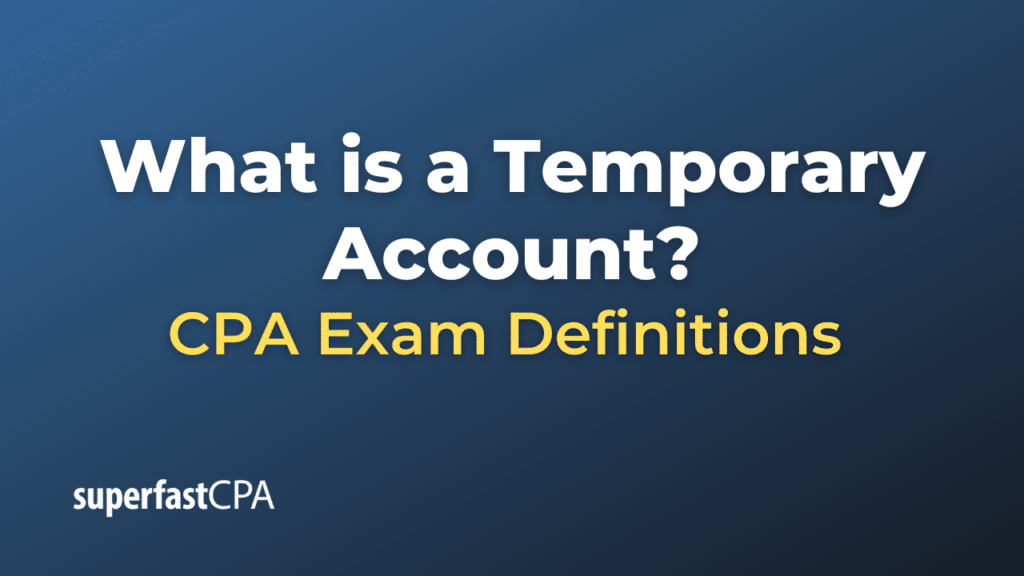Temporary Account
A temporary account, often referred to as a nominal account, is an account in the general ledger that is closed at the end of the accounting period. Unlike permanent (real) accounts, which accumulate balances over the indefinite life of the company, temporary accounts start each new accounting period with a zero balance.
The purpose of temporary accounts is to track the revenues, expenses, gains, and losses for a specific period. At the end of this period, these accounts are closed or reset, and their balances are transferred to permanent equity accounts, such as retained earnings (for corporations) or owner’s capital accounts (for sole proprietorships or partnerships).
Common temporary accounts include:
- Revenue Accounts: All income or revenue streams, like sales revenue, service revenue, etc.
- Expense Accounts: Examples include rent expense, salaries expense, utilities expense, etc.
- Gain and Loss Accounts: Such as loss on sale of assets or gain from the sale of investments.
- Income Summary: This is a special account used during the closing process to aid in the transfer of balances from temporary to permanent accounts. It’s not always used, but when it is, it’s only for a short duration during the closing process.
Example of a Temporary Account
Let’s illustrate the concept of temporary accounts with a practical example involving a fictional small business called “Lucy’s Lemonade Stand.”
Lucy’s Lemonade Stand – Year-end Balances:
- Sales Revenue: $12,000
- Cost of Goods Sold (COGS): $3,000
- Advertising Expense: $2,000
- Utilities Expense: $500
- Retained Earnings (before closing): $20,000
Closing Process at Year-end:
- Close Sales Revenue:
- Debit Sales Revenue: $12,000 (to bring its balance to zero)
- Credit Income Summary: $12,000
- Close COGS:
- Credit COGS: $3,000 (to bring its balance to zero)
- Debit Income Summary: $3,000
- Close Advertising Expense:
- Credit Advertising Expense: $2,000 (to bring its balance to zero)
- Debit Income Summary: $2,000
- Close Utilities Expense:
- Credit Utilities Expense: $500 (to bring its balance to zero)
- Debit Income Summary: $500
After these entries, the Income Summary account will have a credit balance of $6,500. This represents the net income for the year (Sales of $12,000 minus total expenses of $5,500).
- Close Income Summary to Retained Earnings:
- Debit Income Summary: $6,500 (to bring its balance to zero)
- Credit Retained Earnings: $6,500
After all these closing entries, the ending balance in Retained Earnings will be $26,500 ($20,000 initial balance + $6,500 net income for the year).
On the first day of the next fiscal year, Sales Revenue, COGS, Advertising Expense, and Utilities Expense accounts will all start with a balance of $0, ready to record the new year’s transactions.













